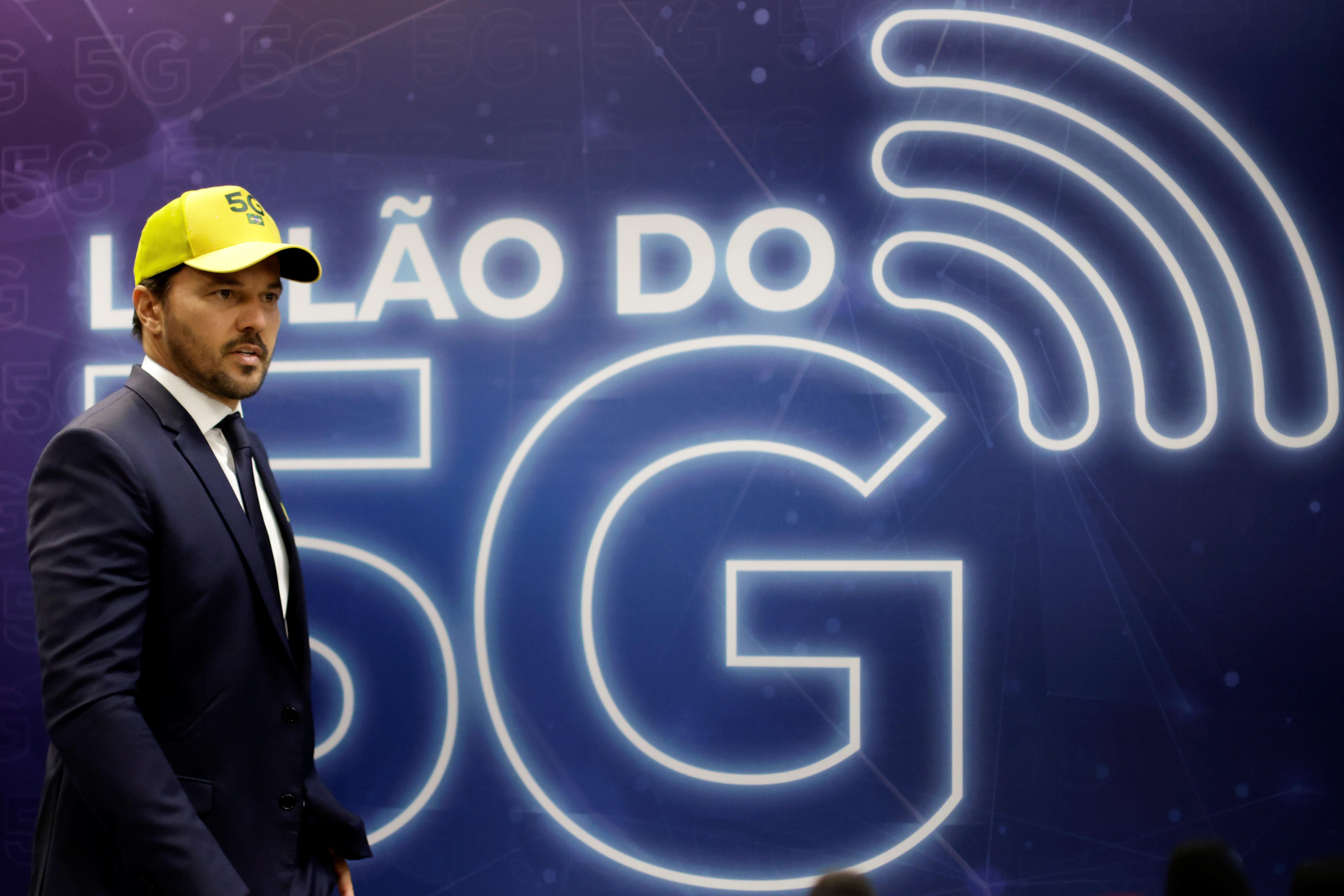November 07, 2021
Is China shut out of Brazil's 5G comp? Earlier this year, Brazil's President Jair Bolsonaro set an ambitious deadline to roll out 5G broadband – which provides much faster internet connections – by July 2022. In recent days, telecom firms have been vying to get a piece of the pie as the tender process heats up. Indeed, it's a lucrative prospect for telecom companies in a country where more than three-quarters of the population (or roughly 190 million people) are connected to the World Wide Web. But the process has not been smooth sailing because, well: China. Bolsonaro has been under a lot of pressure from China skeptics within his own government, and Washington, to exclude tech giant Huawei from the bidding wars. Bolsonaro ultimately caved, as Beijing has evidently been locked out of the process for now. Claro, a Mexican-Brazilian venture, and Spain's Telefonica seem to have walked away big winners from the 5G auction after putting up the most cash for spectrum rights. But this is all very awkward because Huawei has been a major tech provider in Brazil for decades, and local cell phone operators also rely on Huawei's tech. What's more, excluding Huawei, by far the most cost-effective supplier of 5G equipment in the country, will increase the project's overall cost, which is now expected to exceed $7 billion. Many remain skeptical that this massive task can be pulled off in just nine months. But whenever it does happen, it will be great news for Brazilians, many of whom live in remote areas with shoddy internet access.
More For You
- YouTube
Who decides the boundaries for artificial intelligence, and how do governments ensure public trust? Speaking at the 2026 World Economic Forum in Davos, Arancha González Laya, Dean of the Paris School of International Affairs and former Foreign Minister of Spain, emphasized the importance of clear regulations to maintain trust in technology.
Most Popular
Moldovan President Maia Sandu speaks during a Council of Europe diplomatic conference to launch the International Claims Commission for Ukraine, aimed at handling compensation claims related to Russia's war in Ukraine, in The Hague, Netherlands, December 16, 2025.
REUTERS/Piroschka van de Wouw
The president of the tiny eastern European country has suggested possibly merging with a neighbor.
Hard numbers: US pitches “New Gaza,” Japan paves way for snap elections, “Sinners” smashes records, & More
Jan 23, 2026
Middle East negotiator and son-in-law of President Trump, Jared Kushner talks with Israeli diplomats following a joint press conference in the State Dining Room of the White House in Washington, DC, USA, 29 September 2025.
$25 billion: The minimum amount of investment required to fulfil Jared Kushner’s ambitious property plan for Gaza.
- YouTube
Who decides how much control a country should have over its technology? Speaking at the 2026 World Economic Forum in Davos, former UK Prime Minister Rishi Sunak discussed the balance between national sovereignty and global interdependence.
© 2025 GZERO Media. All Rights Reserved | A Eurasia Group media company.
